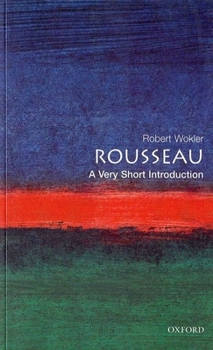Rousseau: A Very Short Introduction
(Part of the Very Short Introductions (#48) Series and Oxford's Very Short Introductions series Series)
Select Format
Select Condition 
Book Overview
One of the most profound thinkers of modern history, Jean-Jacques Rousseau (1712-78) was a central figure of the European Enlightenment. He was also its most formidable critic, condemning the political, economic, theological, and sexual trappings of civilization along lines that would excite the enthusiasm of romantic individualists and radical revolutionaries alike. In this study of Rousseau's life and works, Robert Wolker shows how his philosophy of history, his theories of music and politics, his fiction, educational, and religious writings, and even his botany, were all inspired by revolutionary ideals of mankind's self-realization in a condition of unfettered freedom. He explains how, in regressing to classical republicanism, ancient mythology, direct communication with God, and solitude, Rousseau anticipated some post-modernist rejections of the Enlightenment as well.
Format:Paperback
Language:English
ISBN:0192801988
ISBN13:9780192801982
Release Date:December 2001
Publisher:Oxford University Press
Length:192 Pages
Weight:0.40 lbs.
Dimensions:0.5" x 4.5" x 7.0"
Customer Reviews
1 rating
A practical overview
Published by Thriftbooks.com User , 16 years ago
ALL of the "Very Short Introduction" series offered by Oxford University press are useful, and this is no exception. As a college professor in Humanities, I teach a rolling schedule of courses that cover different periods. Prior to teaching these, I like to review the works of major authors of the periods I will be presenting, as in this case, Rousseau. Each book presents the overview I need to refresh my knowledge, including biographical details and insights on the most important characteristics of their writings and philosophy.






